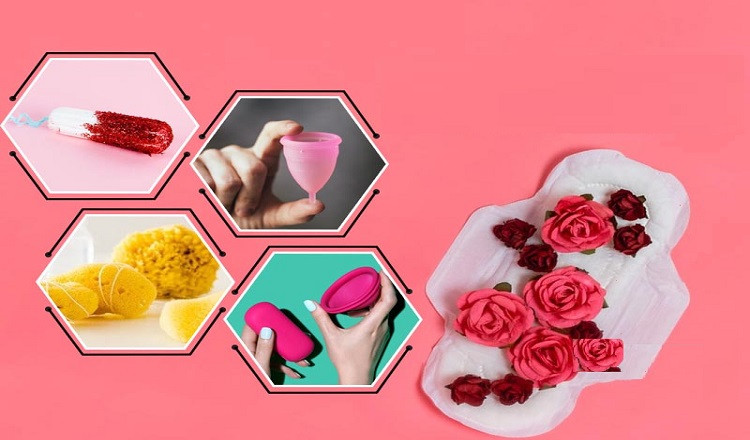
New Delhi, Aug 6 (PTI) The Union Health Ministry is working on formulating a national menstrual hygiene policy that seeks to ensure access to safe and hygienic menstrual products, improve sanitation facilities, address social taboos and foster a supportive environment.
Through these measures, the policy strives to break barriers, eliminate stigma and create a society where menstrual hygiene is prioritised and leads to gender equality, education and overall development, official sources said.
A national consultation with various stakeholders was held and in-person inputs have been collated, the sources told PTI.
“The vision is to ensure all women, girls and persons who menstruate are able to experience menstruation in a manner that is safe, healthy and free from stigma,” a source said.
Awareness has increased with time but there is a need for more investment to comprehensively address the diverse requirements of all individuals who menstruate. India, with its vast and diverse population, places great emphasis on framing a comprehensive menstrual hygiene policy, the source added.
According to the National Family Health Survey 5, 78 per cent women in the 15-24 age group use a hygienic method of protection during their menstrual cycle. This marks a rise from 58 per cent in the National Family Health Survey 4.
According to the latest survey, 64 per cent of these women use sanitary napkins, 50 per cent use cloth and 15 per cent use locally prepared napkins.
The survey also revealed that women who have received 12 or more years of schooling are more than twice as likely to use a hygienic method compared to those with no schooling, stressing on the importance of education for girls.
In terms of location, 73 per cent of rural women and 90 per cent of urban women use a hygienic method of menstrual protection.
However, a few states continue to have lower-than-average access to hygienic methods of menstrual protection. The findings highlight the need for targeted efforts and initiatives to improve menstrual hygiene practices in these regions.
According to the source, “The menstrual hygiene policy aligns with India’s commitment to achieving the sustainable development goals, particularly in relation to Goal 3 on good health and wellbeing, Goal 4 on quality education, Goal 5 on gender equality and Goal 6 on clean water and sanitation.” “It places a specific focus on prioritising underserved and vulnerable populations, ensuring equitable access to menstrual hygiene resources and addressing their specific needs,” the source said.
The objective is to ensure that women, girls and persons who menstruate have access to safe, hygienic and quality menstrual products and sanitation facilities, the source added.
The policy aims at establishing an enabling environment for people, including women, girls, men and boys, so that they have access to correct information on menstruation and to address the myths, stigma and gender issues around it.
It also aims to create a ‘menstrual friendly environment’ in all settings, including homes, schools and academic institutions, workplaces and public spaces and strengthen environmentally sustainable menstrual waste disposal, the official source stated.
“Under the policy, academic institutions and workplaces will be urged to promote inclusivity and provide provisions like flexible working arrangements such as work from home or support leave to accommodate the specific needs of individuals during menstruation,” the source said.
The strategies under the policy involves developing mechanisms to ensure affordable and accessible menstrual products such as disposable or reusable sanitary pads, menstrual cups, tampons or reusable cloth pads are available to all who menstruate, especially those in low-income communities and marginalised groups.
It includes initiatives such as the menstrual hygiene scheme to provide free or subsidised menstrual hygiene products in schools and academic institutions. This ensures that people have access to the necessary products while attending classes, reducing absenteeism and promoting continued education.
There will also be targeted outreach programmes in rural, hilly and remote areas — where girls, women and people who menstruate face additional challenges in accessing menstrual hygiene products — to ensure equitable access regardless of geographical location.
Besides, supply chains and distribution networks will be developed to ensure consistent availability of menstrual hygiene products across various regions. This involves establishing partnerships with local retailers, pharmacies and online platforms to facilitate easy access to these products.
A proper public procurement and logistics system has to be ensured for uninterrupted access to menstrual hygiene products through public facilities, the source added.
As far as the current programmes are concerned, the Union Ministry of Health initiated the Menstrual Hygiene Scheme in 2011 to focus on the distribution of low-cost sanitary napkins in communities through Accredited Social Health Activists (ASHA).
The Union Ministry of Jal Shakti included menstrual hygiene management in the Swachh Bharat Mission – Gramin initiatives in 2014 and, along with the Union Ministry of Education, launched the National Guidelines for Menstrual Hygiene Management in 2015.
Within the ambit of the Union Ministry of Health, the Rashtriya Kishor Swasthya Karyakram focussed on improving access to services, commodities and support for the adolescent population.
The introduction of subsidised oxo-biodegradable pads under Jan Aushadi Suvidha Kendras has also been a major milestone for the National Guidelines for Menstrual Hygiene Management. PTI PLB SZM
This report is auto-generated from PTI news service

ന്യൂ ഡൽഹി: കോവിഡ്-19 ബാധിച്ച് മരണമടഞ്ഞ ഡോക്ടർമാരുടെ 29 ശതമാനം കുടുംബങ്ങൾക്ക് മാത്രമാണ് ഇതുവരെ സർക്കാർ ധനസഹായം നൽകിയതെന്ന് വിവരാവകാശ രേഖ.
India has built the world’s first disaster hospital, that can be airlifted, packed in 72 cubes. These cubes can handle several severe injuries including 40 bullet injuries, 25 major bleeds, 25 major burns, around 10 head injuries, long limb fractures, spinal injuries, chest injuries and spinal fractures
Chaos in Hospital ;Civil Hospital Battles Crisis After Air India Crash
Cancer Deaths Rising in India, Lifestyle Risks a Major Cause
Ganesh Baraiya, a man from Gujarat standing at just three feet tall, faced rejection from a medical college when the Medical Council of India deemed him "incapable" of pursuing a career in medicine.
We have various options to advertise with us including Events, Advertorials, Banners, Mailers, etc.